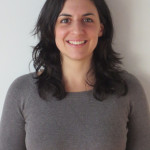One of the most important points to keep in mind when your child or a student in your class is receiving speech and language services is the importance of carrying over intervention in both the home and school settings. It is ideal for parents, therapists, and educators to work together and discuss the techniques that will be effective for each child. There are many strategies that can be incorporated into a child’s daily routine to boost their speech and language skills. In this post, we will focus on basic concept understanding and use.
These strategies are intended for students who have difficulty understanding concepts.
Pre-kindergarten through Grade 1/Year 2
- Provide a visual demonstration of the concept. For example, if working on the concept ‘on,’ actually put an item ‘on’ a table.
- Have the children physically demonstrate the concept when possible. Have the student actually get ‘on’ a carpet square.
- Let the student use objects to demonstrate comprehension of the concept. Have the student verbalize comprehension by explaining what they did with the object. ‘Where did you put the bear?’ ‘I put it on the table.’
- Have the student use the concept in a variety of situations throughout the day. Use their bodies, pencil and paper, in different places of the school, etc.
Grade 2/Year 3 – Grade 5/Year 6
- Allow students to use manipulatives to solve math problems to give them a visual cue.
- When working on time and measurement concepts use visual organizers (i.e., timelines, thermometers, graphic organizers, etc.). Allow students to use these visual organizers on tests or projects.
- Keep a running list of concepts the student is having trouble with and utilize others (i.e., classroom aids or student teachers) to help work on those concepts individually.
- Give students time to talk through new concepts in social studies, science, math, etc.




